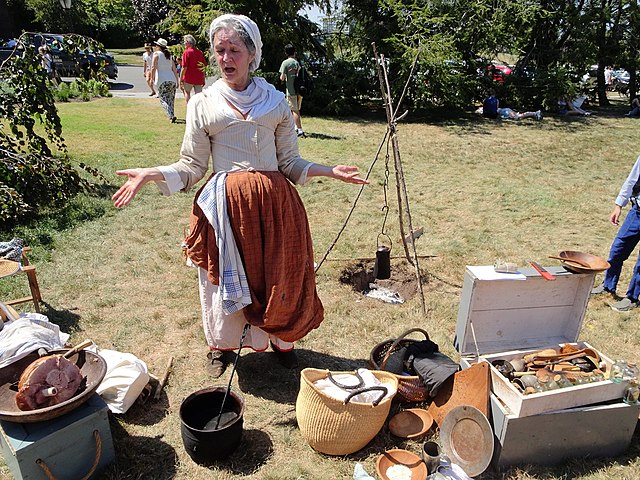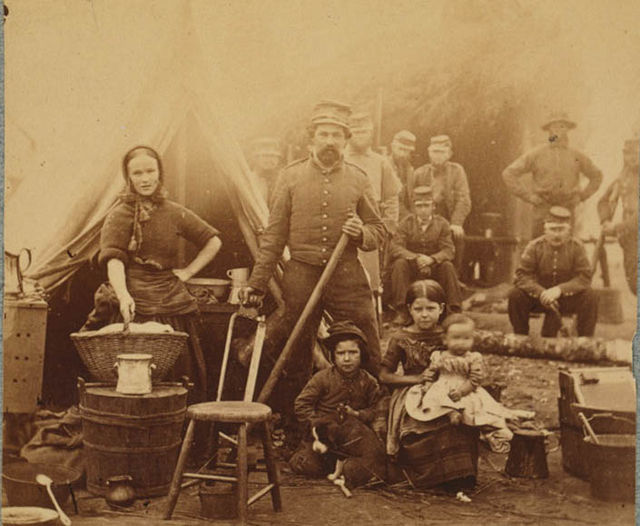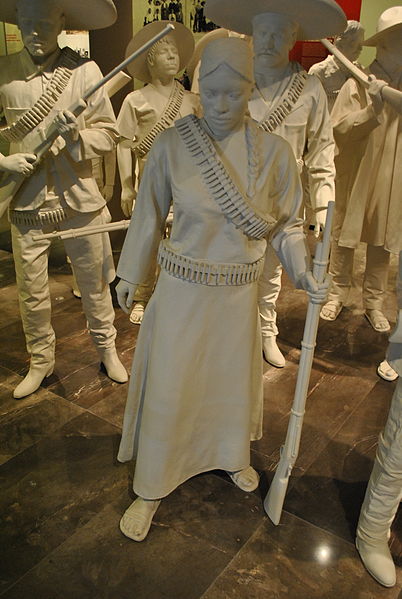Camp followers are civilians who follow armies. There are two common types of camp followers; first, the spouses and children of soldiers, who follow their spouse or parent's army from place to place; the second type of camp followers have historically been informal army service providers, servicing the needs of encamped soldiers, in particular selling goods or services that the military does not supply—these have included cooking, laundering, liquor, nursing, sexual services and sutlery.
18th century camp follower reenactment
1862 photograph of camp follower with her 31st Pennsylvania Infantry Regiment soldier/husband and their three children
Soldaderas, often called Adelitas, were women in the military who participated in the conflict of the Mexican Revolution, ranging from commanding officers to combatants to camp followers. "In many respects, the Mexican revolution was not only a men's but a women's revolution." Although some revolutionary women achieved officer status, coronelas, "there are no reports of a woman achieving the rank of general." Since revolutionary armies did not have formal ranks, some women officers were called generala or coronela, even though they commanded relatively few men. A number of women took male identities, dressing as men, and being called by the male version of their given name, among them Ángel Jiménez and Amelio Robles Ávila.
Adelita, an idealized image of a soldadera in the Historical Museum of the Mexican Revolution.
Revolutionaries and their unarmed Adelitas. Posed undated photo, place unknown
María Arias Bernal defended Madero's tomb during Victoriano Huerta's counter-revolution
Amelio Robles Avila, coronela in the Revolutionary Army of the South






